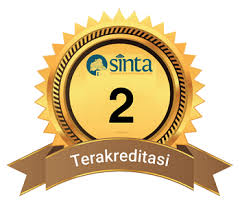Hope's Harvest: A Phenomenological Study of Happiness in Lower-Middle-Class Families in Yogyakarta, Indonesia: Exploring Intrinsic Values and Resilience
DOI:
https://doi.org/10.31316/g-couns.v9i3.7723Abstract
This research investigates happiness conceptualizations among lower-middle economic status families in Yogyakarta, Indonesia. This study employed a qualitative phenomenological approach to explore the meaning of happiness in families in the Special Region of Yogyakarta, categorized as a poor province. Using purposive sampling, 15 IMP cadres from Bantul Regency were selected. Data were collected through in-depth interviews and analyzed using phenomenological reduction techniques. Credibility was ensured through data triangulation. Low-income families in Yogyakarta continue to exhibit strong religiosity, sincerity, and psychological resilience despite economic limitations. While economic factors influence happiness, intrinsic qualities play a more decisive role. This study challenges Western perspectives by emphasizing happiness rooted in internal resources. Welfare policies should address mental and social aspects, not just economic factors. Understanding culturally based happiness can help counseling practitioners support economically disadvantaged clients. Future research should explore additional happiness factors in similar contexts.
Keywords: lower middle-class, religiosity, mental well-being, happiness attributes
Downloads
Published
How to Cite
Issue
Section
Citation Check
License
Copyright (c) 2025 dody hartanto, Wahyu Nanda Eka Saputra, Prima Suci Rohmadheny, Mufied Fauziah, Nadia Aulia Nadhirah

This work is licensed under a Creative Commons Attribution-ShareAlike 4.0 International License.
The Authors submitting a manuscript do so on the understanding that if accepted for publication, copyright publishing of the article shall be assigned to G-Couns: Jurnal Bimbingan dan Konseling

G-Couns: Jurnal Bimbingan dan Konseling is licensed under a Creative Commons Attribution-ShareAlike 4.0 International License.
















